This post is brought to you by The Racing Line, your personalised motorsport calendar app. Get session times for over 150 series, from rally to bikes, single seaters to sportscars with customisable notifications and built-in streaming. Download on iOS today!
Genesis has confirmed that the V8 twin turbo engine which will power the company's first prototype sportscar, the GMR-001, was successfully fired up at the end of February.
The engine, which is a 3.2-litre V8 engine with two turbos, is based on Hyundai's inline-4 engine which powers the company's WRC cars. According to a report from Motorsport Acktuell last month, Hyundai have combined two of these inline-4s to create the V8.
Genesis says the design work for the engine started in June 2024 and was completed four months later. The assembly then took place ahead of the first fire-up, which took place on schedule on 28th February.
'The inline-four engine is a very, very sophisticated, very efficient engine,' said François-Xavier Demaison, Hyundai Motorsport technical director.
'It's a proper race engine, so it's a very good base for developing an engine for WEC. Rallying is a sort of endurance race, so for an engine to the 24 Hours of Le Mans, it’s a good place to start from.
'With the time we had available to develop the engine, we immediately knew we did not have enough time to completely design a new engine from scratch.
'For the main part of an engine, you need a long time to design, validate, and of course, to produce. Every part needs to be tested over many kilometers, and the inline-four engine from our World Rally Championship car has already been well proven. It became the logical step to carry over as many parts as possible from the four-cylinder engine.'
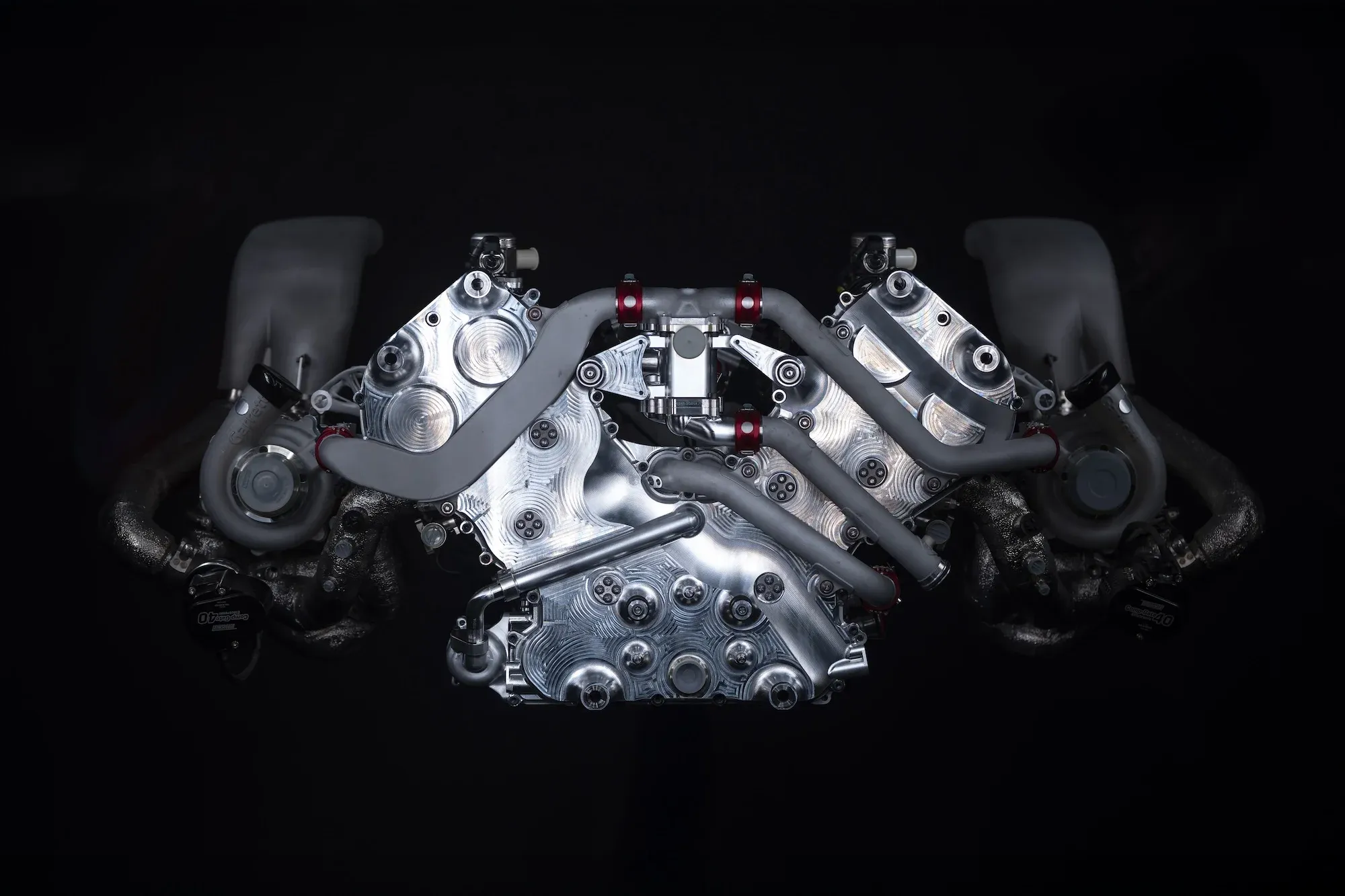
First test in August
The car's first on-track test will be in August, according to the Motorsport Aktuell report. As the team is based close to the Paul Ricard circuit in the south of France, it's likely the team will test the car there first, although that remains unconfirmed.
'After the first crank and the first revs in a steady state, we will progressively add more heat into the system, performing long runs,' said Cyril Abiteboul, team principal for Genesis Magma Racing.
'Then with different dynos, we can test in a more dynamic way, reproducing closer the cycles that the engine will do around a race track like Le Mans.
'We can test equipped to the gearbox and the hybrid system until we have the full powertrain,' he finished.
Debut in WEC at Qatar 2026
The car will make its debut in the FIA World Endurance Championship in 2026, at the first race of the season at Lusail International Circuit in Qatar.
Genesis is building up an in-house race team at its base in France, together with IDEC Sport, a long-time LMP2 team who Genesis have partnered with for the WEC project.
IDEC Sport, together with drivers Jamie Chadwick, Mathys Jaubert, and Daniel Juncadella, finished second in the first European Le Mans Series race, the 4 Hours of Barcelona.
Currently the only two drivers confirmed for the Genesis Hypercar programme are Andre Lotterer and Pipo Derani, although it's believed all three IDEC sport drivers are also in contention for a seat next year.
An IMSA programme, to debut in 2027, has also been confirmed. Currently there are no further details about it, including a partner team. While Chip Ganassi Racing, which last ran Cadillac cars in IMSA and WEC, was believed to be the frontrunner for the programme, the chaces of this have now faded.
This may be due to a senior CGR engineer, Justin Taylor, leaving the team for Genesis. Genesis have also recruited Matthieu Leroy, previously race engineer of the #5 Porsche 963, run by Penske, in WEC.
Currently it is believed the two teams in contention to run the Genesis IMSA programme are either Pratt Miller, or Bryan Herta Autosport.
The former are running an LMP2 car in IMSA this year, with the goal being to attract the attention of a manufacturer for a GTP programme. Bryan Herta Autosport, meanwhile, run TCR cars in the IMSA Michelin Pilot Challenge, winning multiple championships from 2019-2023.
Livery revealed
Finally, Genesis also revealed the car's livery yesterday, a striking orange and red combination, at the New York Auto Show. See a gallery, and a video, below for more pictures.
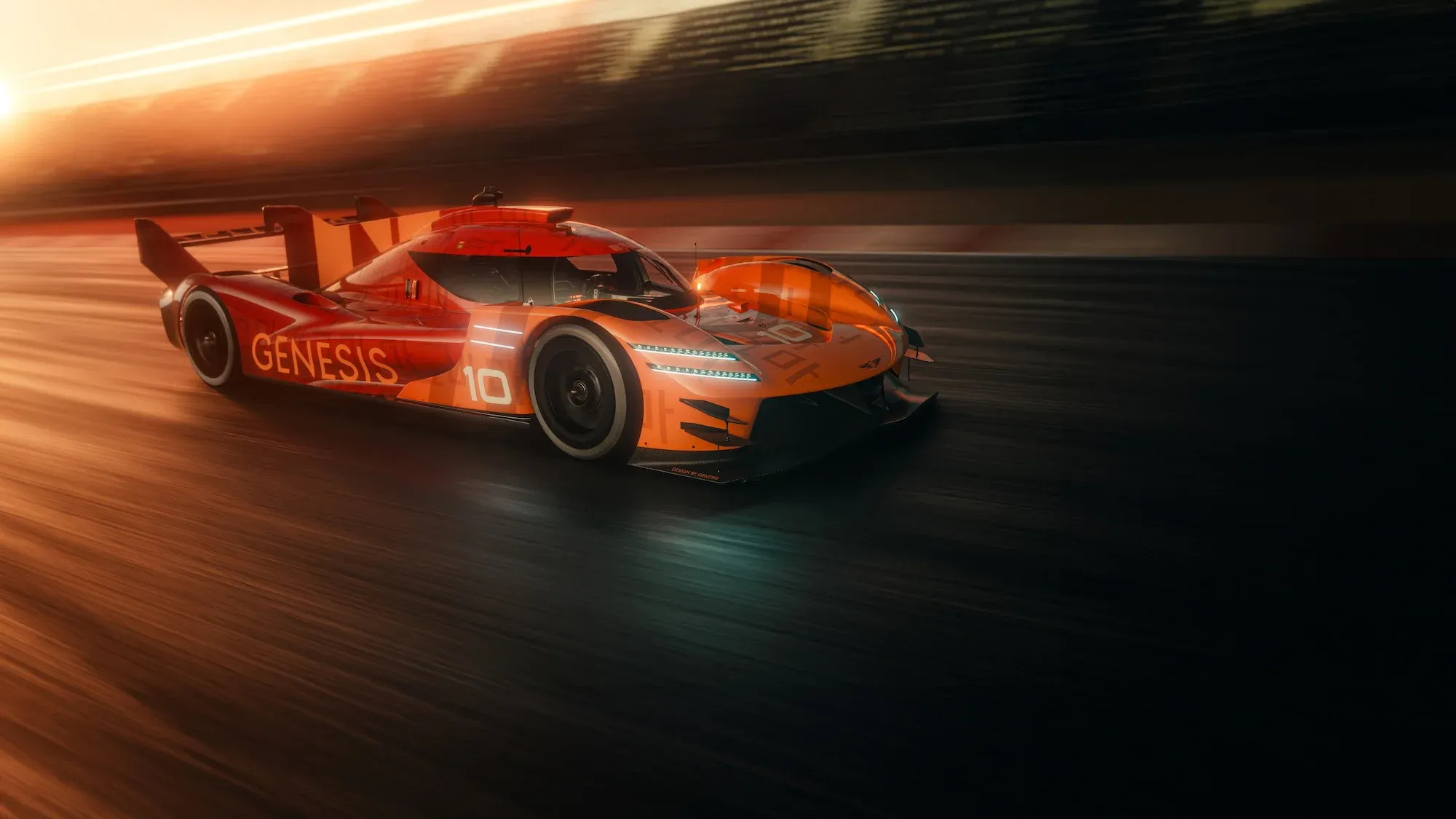
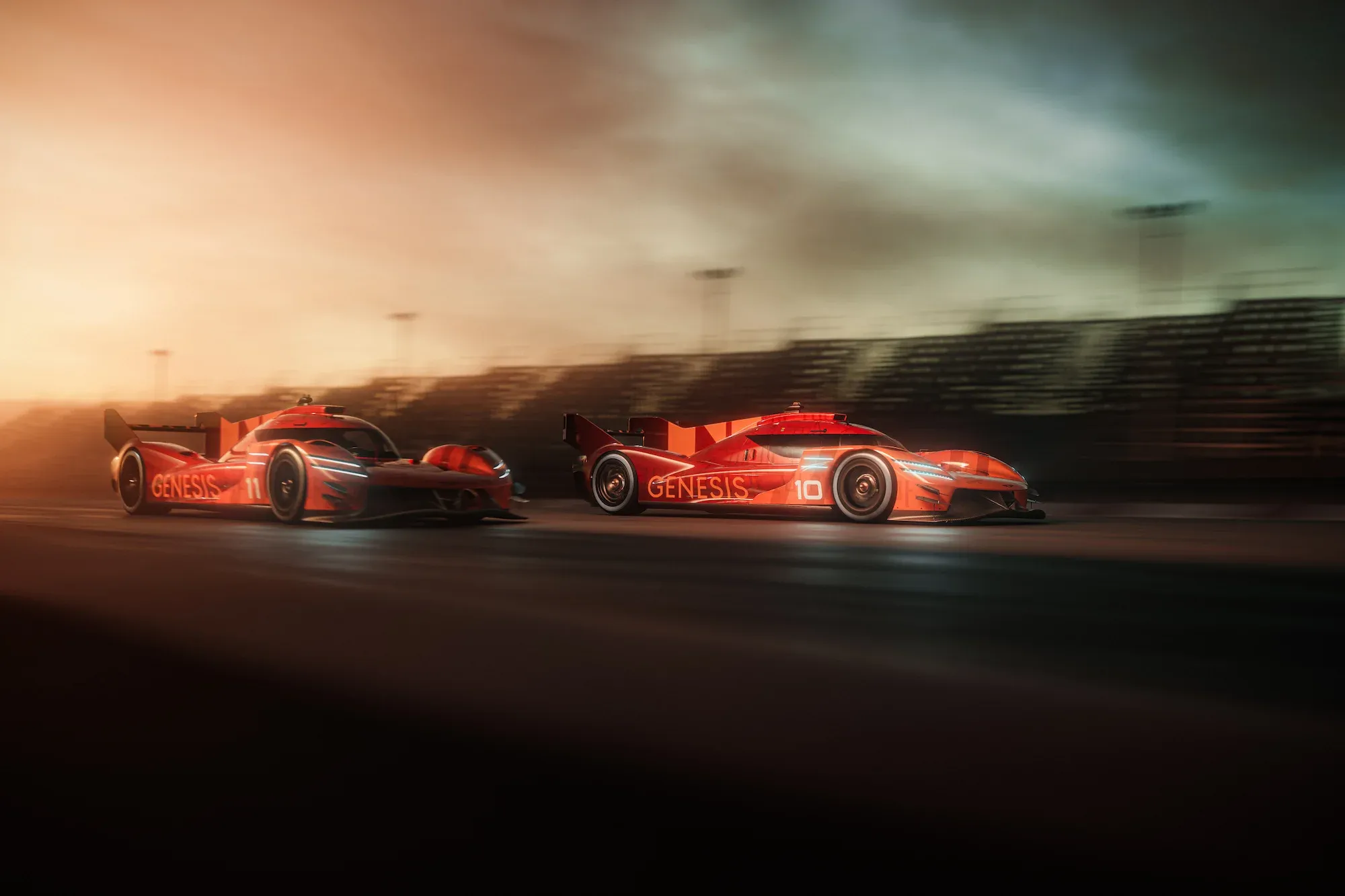
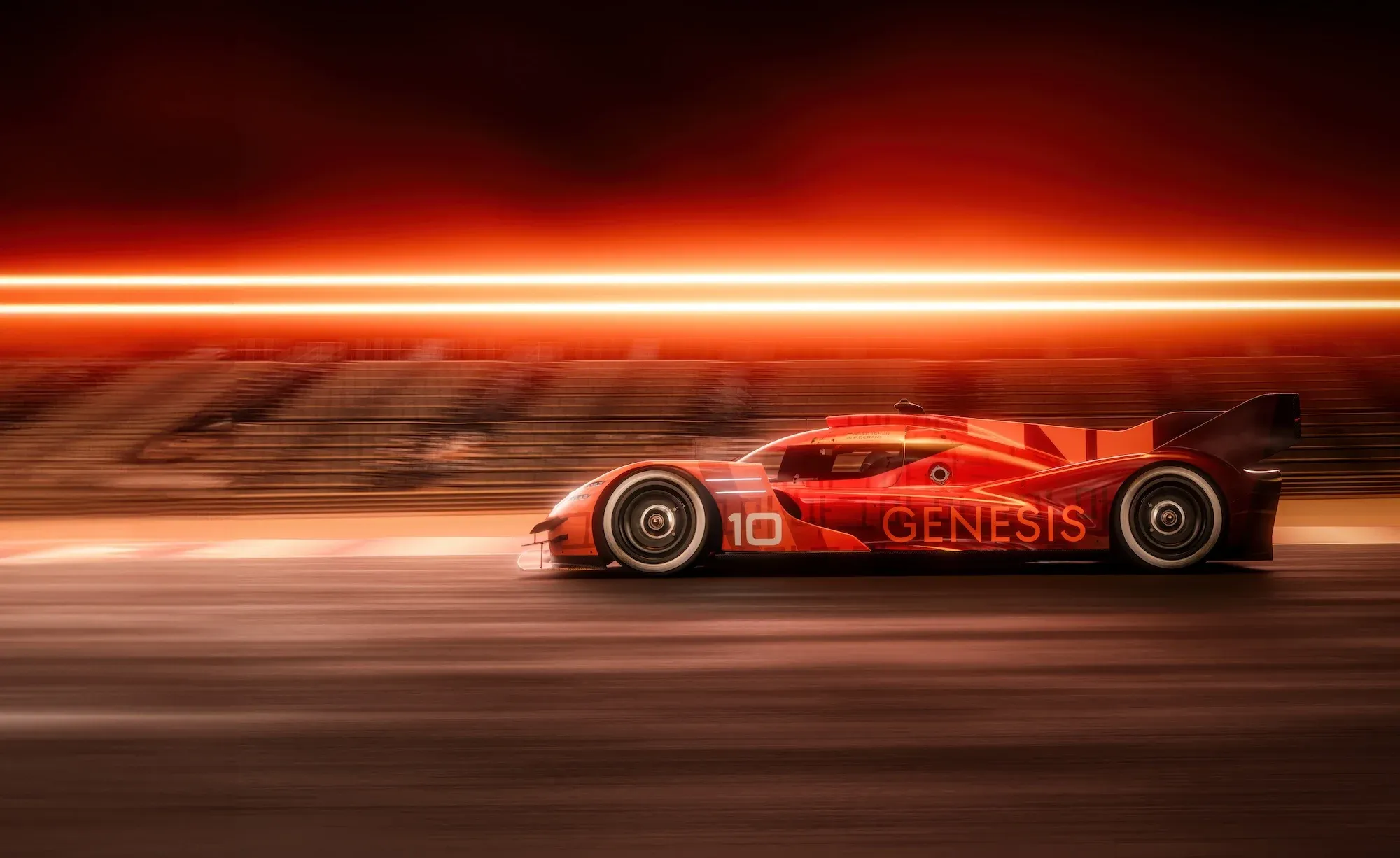
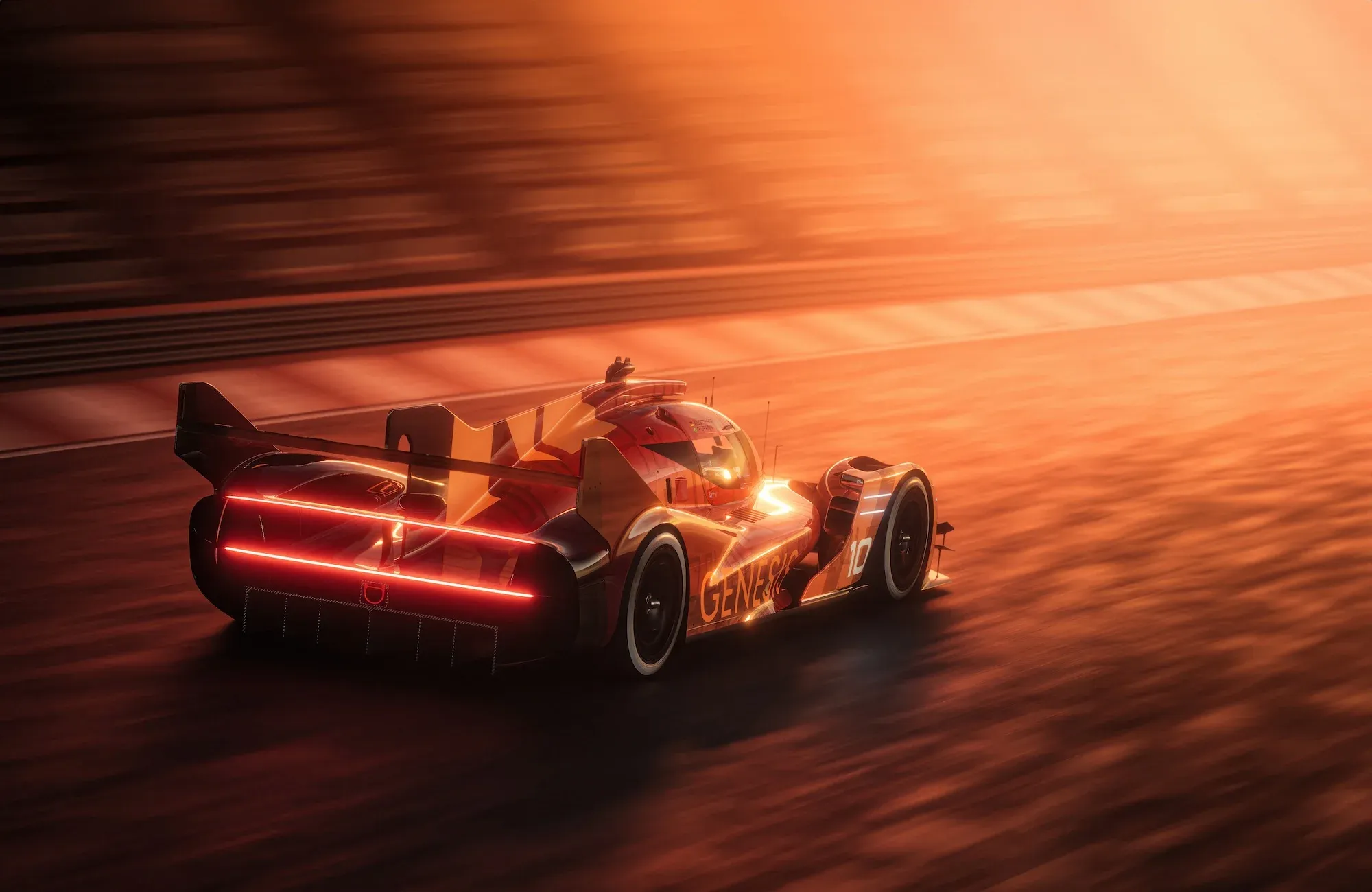
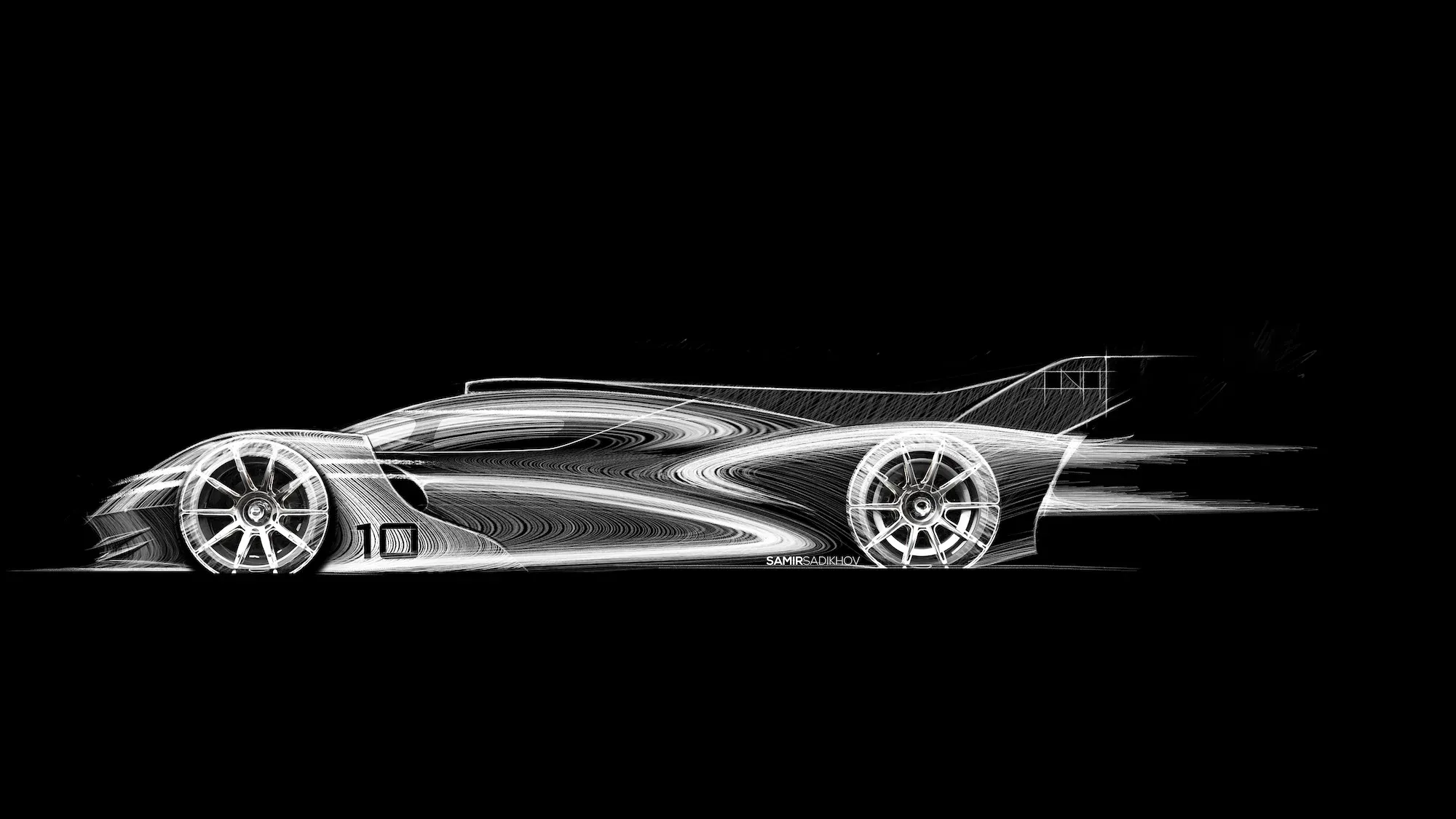
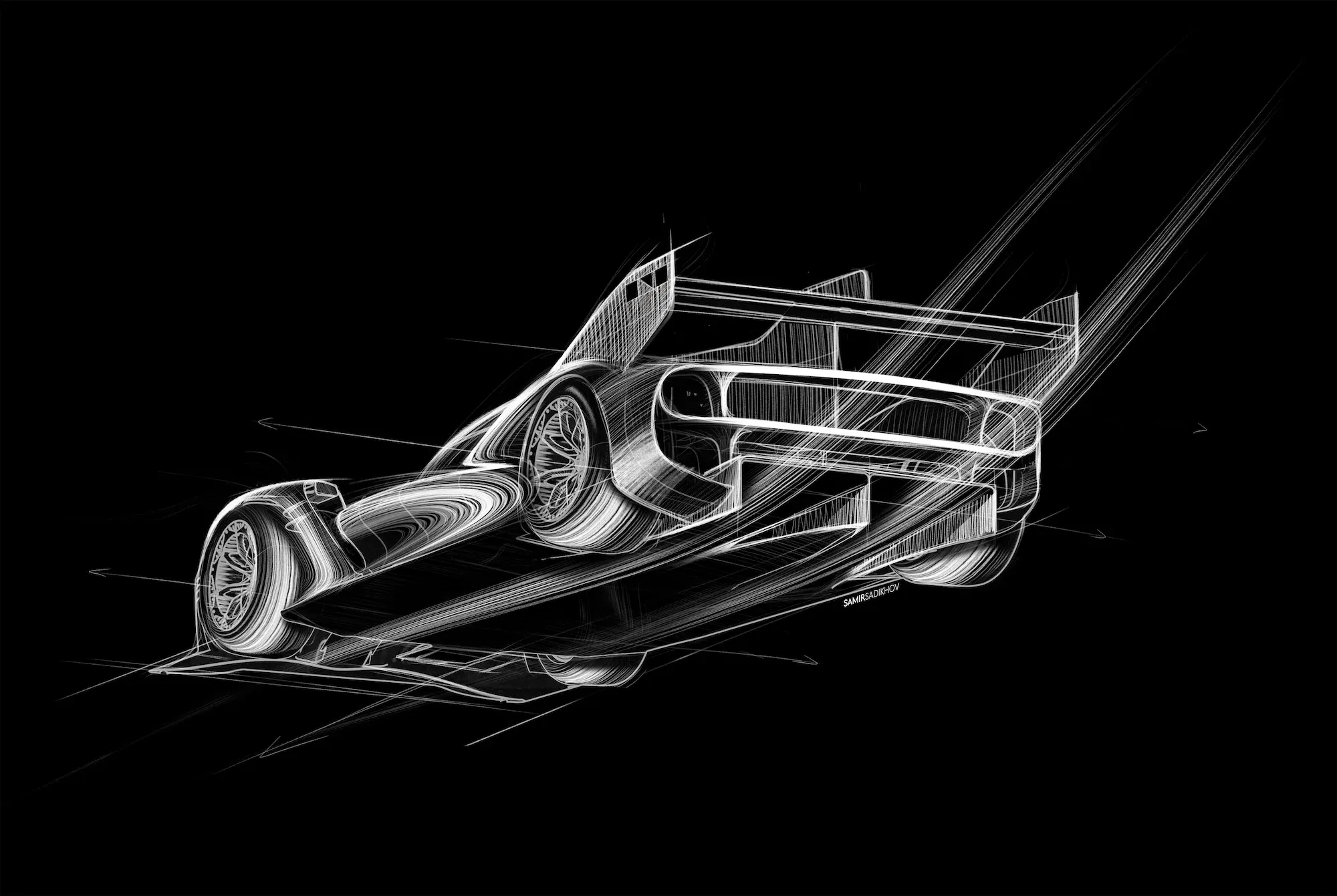
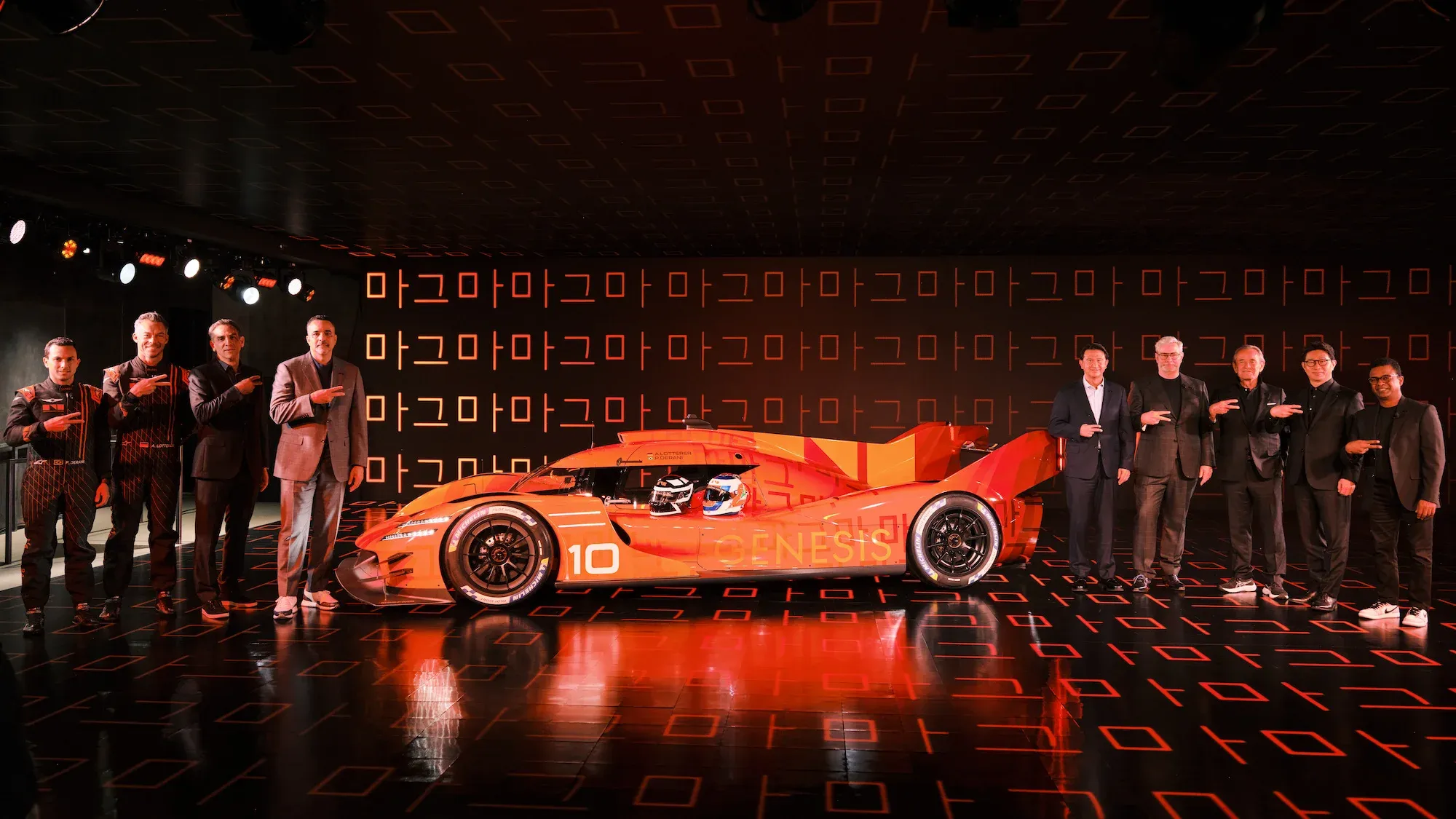
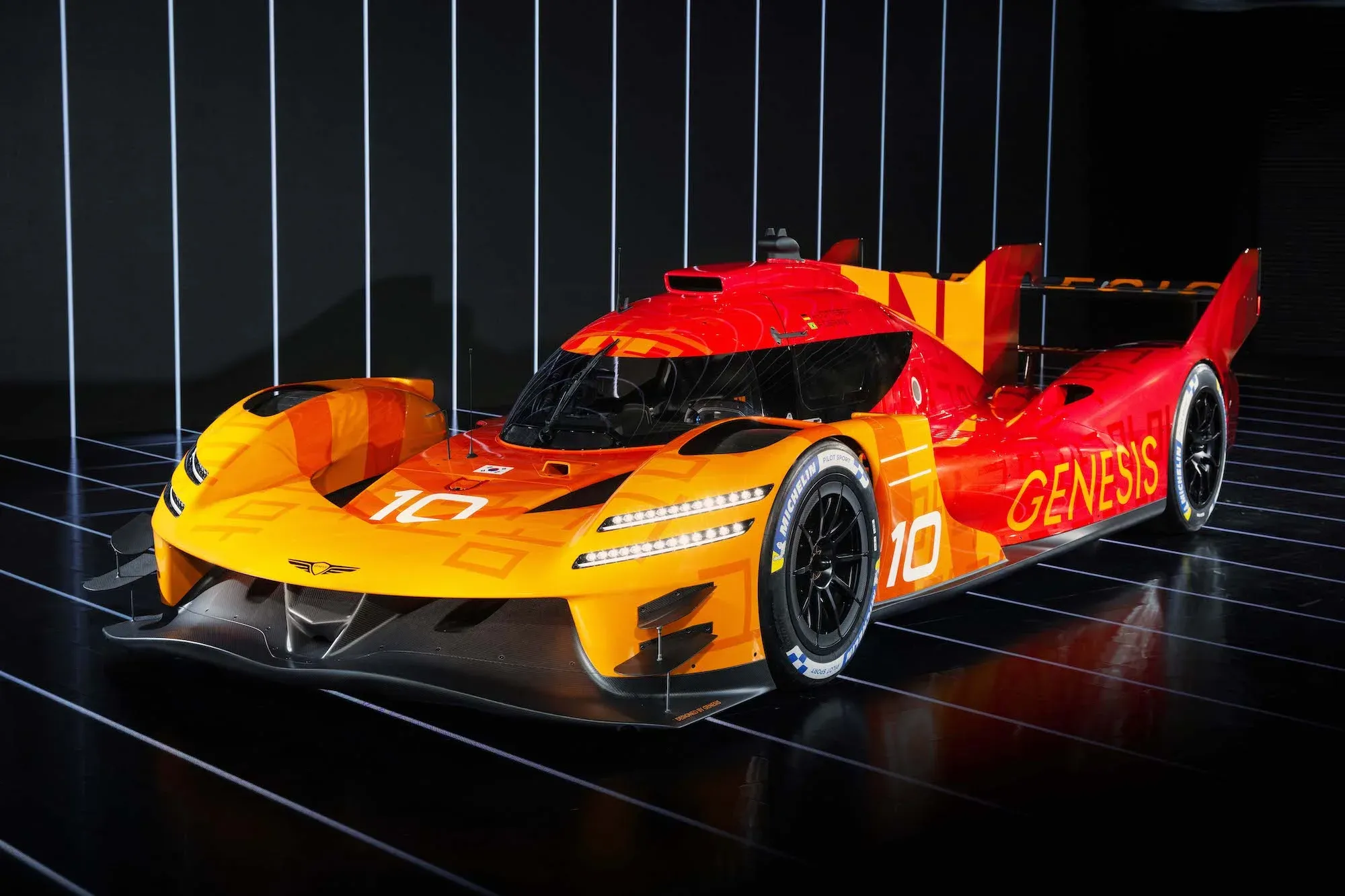
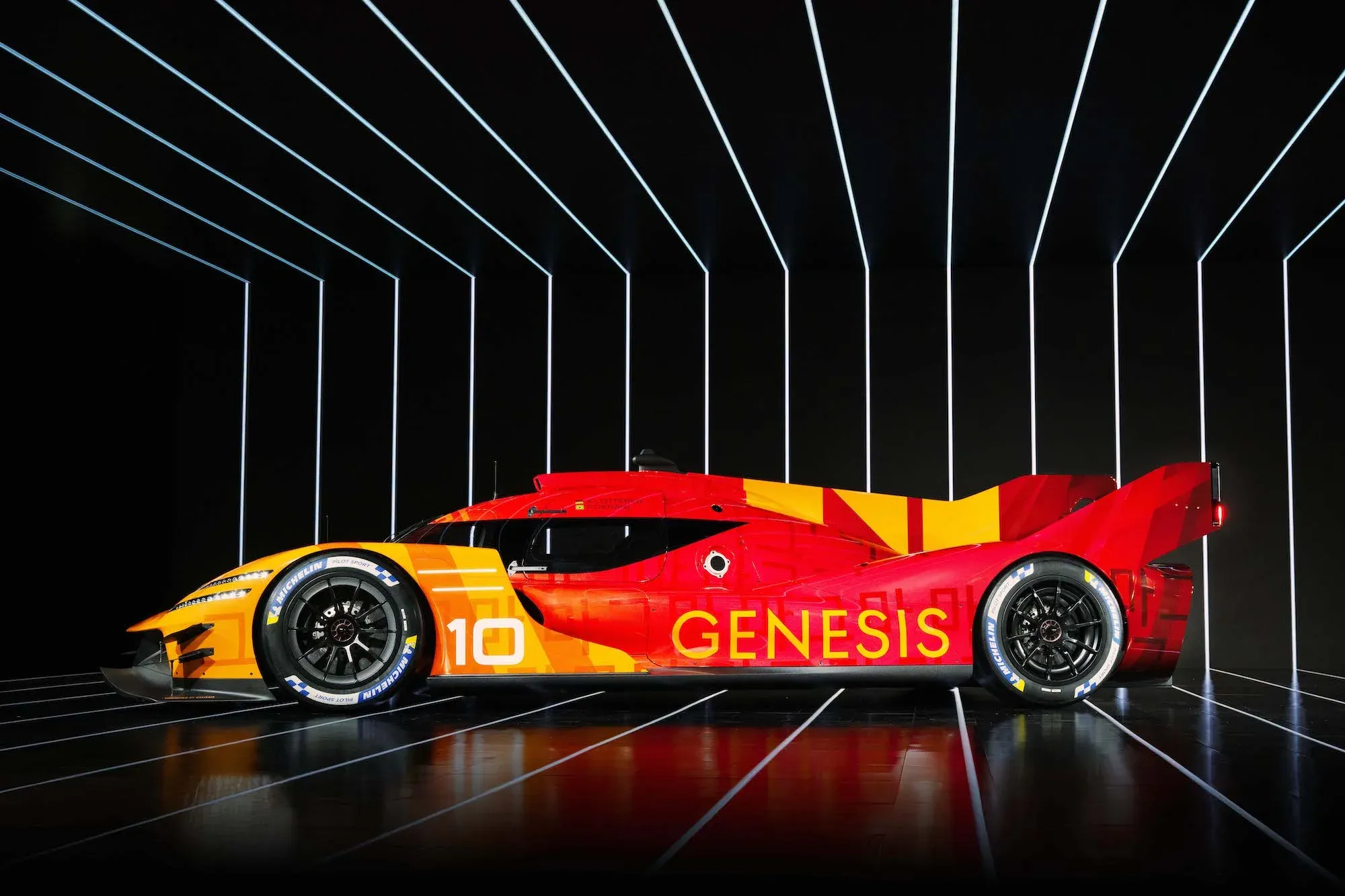
All images credit Genesis
Download The Racing Line on iOS today and get 70% off a year's subscription!


